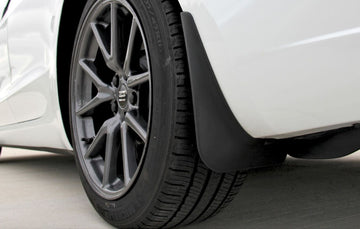Introduction
In a groundbreaking move towards a new era of urban mobility, Volkswagen of America has announced a strategic partnership with Uber to launch a commercial robotaxi service using the autonomous electric ID. Buzz vehicles. This collaboration aims to revolutionize transportation across U.S. cities within the next decade, marking a significant advancement in both companies' ambitions to lead in the autonomous vehicle (AV) market.
Details of the Robotaxi Service
The robotaxi service is set to make its debut in Los Angeles by late 2026. Initially, the fleet of ID. Buzz vehicles will operate under the supervision of human safety operators. However, by 2027, Volkswagen plans to transition to fully driverless operations, showcasing the company's commitment to advancing autonomous technology. The Volkswagen Autonomous Mobility Technology (ADMT) division will begin testing the vehicles in Los Angeles later this year, pending the acquisition of a testing permit from the California Department of Motor Vehicles.
Regulatory Framework and Support
The successful implementation of the robotaxi service will be closely monitored by the California Public Utilities Commission, which will oversee the necessary permits for the commercial ride-hailing phase. This regulatory oversight is crucial as both Volkswagen and Uber navigate the complex landscape of autonomous vehicle deployment.
Volkswagen's Vision for Mobility
Christian Senger, CEO of Volkswagen Autonomous Mobility, emphasized the importance of this collaboration, stating, "Volkswagen is not just a car manufacturer — we are shaping the future of mobility, and our collaboration with Uber accelerates that vision." Senger highlighted that the partnership uniquely combines Volkswagen’s high-volume manufacturing capabilities with cutting-edge technology and an in-depth understanding of urban mobility needs.
Government Policy Shift
The recent policy shift by the Trump administration, announced last Thursday by Transportation Secretary Sean Duffy, supports partnerships like the one between Volkswagen and Uber. This new approach aims to ease federal safety rules and crash reporting requirements concerning autonomous vehicle development. Duffy indicated that the U.S. government is keen on outpacing its Chinese competitors in the autonomous vehicle sector, providing further impetus for initiatives like this robotaxi service.
Volkswagen's Testing and Technological Advancements
Volkswagen ADMT, which launched publicly in July 2023, has already begun testing 10 ID. Buzz vehicles equipped with Mobileye’s autonomous technology in Austin. This move signifies a shift in Volkswagen's strategy from merely selling self-driving vans and fleet management software to developing a robust ride-hailing service. The partnership with Uber is a clear indication that Volkswagen is ready to embrace a broader vision for autonomous vehicles.
Uber's Expanding Autonomous Vehicle Portfolio
For Uber, the collaboration with Volkswagen strengthens its autonomous vehicle portfolio. The ride-hailing giant has already secured partnerships with over 14 firms, including Waymo in Austin, and is poised for a forthcoming launch in Atlanta. By integrating the ID. Buzz into its fleet, Uber stands to enhance its service offerings while capitalizing on the growing demand for autonomous transportation solutions.
Implications for Urban Mobility
The Volkswagen-Uber partnership positions both companies to capitalize on the expanding robotaxi market. With impending testing and increasing regulatory support, the ID. Buzz fleet has the potential to redefine urban mobility. This initiative not only showcases Volkswagen’s manufacturing expertise but also leverages Uber’s extensive ride-hailing network, setting the stage for a competitive edge in the evolving landscape of autonomous vehicles.
Conclusion
As the landscape of urban transportation continues to evolve, the collaboration between Volkswagen and Uber represents a pivotal moment in the journey towards fully autonomous mobility solutions. With testing set to commence soon and regulatory frameworks being established, the ID. Buzz robotaxi service could significantly impact how people navigate cities in the future. As both companies work towards realizing this vision, the implications for consumers and the broader transportation ecosystem will be profound, potentially leading to safer, more efficient, and environmentally-friendly urban mobility options.

















































